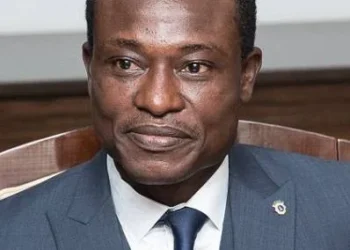A Banking Consultant, Dr. Richmond Atuahene, has stated that instead of government to only roll out a debt exchange programme, it could have also employed the debt rescheduling and debt re-profiling programs to ensure that the country’s debts reach sustainable levels.
According to him, just implanting one debt operation could result in dire consequences in the economy and could also prove counterproductive. Specifically, he noted that the debt exchange programme could affect output in the country, which could lead to high unemployment rates and lower revenues for the country.
“It’s not a one-size wear. As I said, there are so many models or options for us, but it looks like we have stuck to one which could make it very difficult for us. We could have looked at in addition, a little bit. Per my calculation, if you do even 5% of it, NPV value, you will get somewhere and then, you do the rescheduling and the re-profiling… But if you take one and go straight to it, it’s going to hit the country very, very hard.
“Nobody thinks about the output; it’s going to have effect on the output. And it will, in turn, affect revenue generation, because if people are being laid off, production is going to go down, how are you going to get taxes on the profitability and what have you? So, we’re in a very critical situation and I believe it is not too late.”
Dr. Richmond Atuahene
Dr. Atuahene therefore, advised government to “get back and consult very well” before rolling out the program and should not impose it on the people.
The debt exchange program
Government on Monday, December 5, 2022 launched a debt exchange program to put the country’s debt at a sustainable level.
Based on the program, Ghana is inviting eligible holders to exchange GH₵137.3 billion of the domestic notes and bonds, including Energy Sector Levy Act Plc and Daakye Trust Plc, for a package of New Bonds to be issued by the country.
Finance Minister, Ken Ofori Atta, clarified that the Debt Exchange Programme is part of a key requirement for the government to obtain an economic programme from the International Monetary Fund.
According to him, the government has no choice but to undertake the debt restructuring programme to put the country’s debt on a sustainable path.
After the launch of the program, Deputy Finance Minister, Dr. John Kumah, called on persons enrolled on pension fund schemes to exercise some calm as the government rolls out the debt exchange programme.

According to him, while there have been some fears about the government’s debt exchange programme adversely affecting funds in the trust of pension fund schemes, government has put in place measures to cushion the workers on the various pension schemes.
Dr. John Kumah admitted that pension funds may be hit hard by the debt exchange programme but assured that the government’s liquidity buffers have been put in place to ensure that these funds do not collapse.
An IMF mission team is presently in the country to continue discussions with the authorities on the country’s post-COVID programme for economic growth and associated policies and reforms that could be supported by a new IMF lending arrangement.
READ ALSO: ‘Mr Digital’ Dr Bawumia Launches a New App























